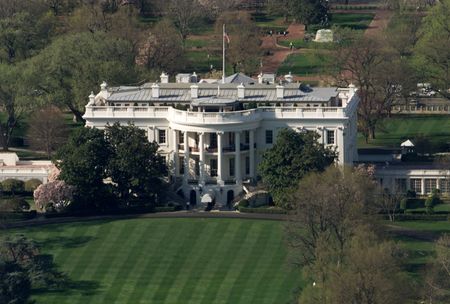By Douglas Gillison and Pete Schroeder
(Reuters) – The White House on Thursday moved to reassure the nation’s community banks that they would not have to foot a $23 billion bill for replenishing the fund that insures deposits following the second- and third-largest bank failures in U.S. history.
In unveiling new measures to strengthen mid-size banks, White House officials told reporters that banks serving local communities “were not to blame” and should not have to pay for the 18% chunk knocked out of a deposit insurance fund by failures of Silicon Valley Bank and Signature Bank.
The FDIC’s insurance fund lost roughly $23 billion as the agency sold off the banks’ portfolios to other firms, requiring it to impose a new “special assessment” fee on banks to refill it.
While the Federal Deposit Insurance Corporation is independent, there were some indications its leadership was already leaning in this direction. In congressional testimony on Wednesday, FDIC Chair Martin Gruenberg told lawmakers his agency would show “particular attention and sensitivity” to any burden placed on community banks, and noted the FDIC has leeway in deciding who should pay any assessment.
“I expect the FDIC is going to pay very close attention to what the White House is saying,” said Todd Phillips, a former senior FDIC attorney, now a fellow at the Roosevelt Institute.
While the White House’s signal was encouraging, the FDIC still has significant leeway, according to Anne Balcer, head of government relations for the industry group Independent Community Bankers of America.
“The good news obviously from seeing what the White House said is… an awareness that the banks that aren’t the ones that are causing this loss and aren’t the ones that are going to create the next crisis shouldn’t be the ones shouldering the cost,” said Balcer.
“It’ll be just, what is the threshold? What is the cutoff for how they define a community bank?”
An FDIC spokesman said the agency had no comment beyond Gruenberg’s testimony. The fund held $128.2 billion at the end of last year.
An FDIC proposal for administering the “special assessment” is due to be released in May.
(Reporting by Douglas Gillison and Pete Schroder; Editing by David Gregorio)





